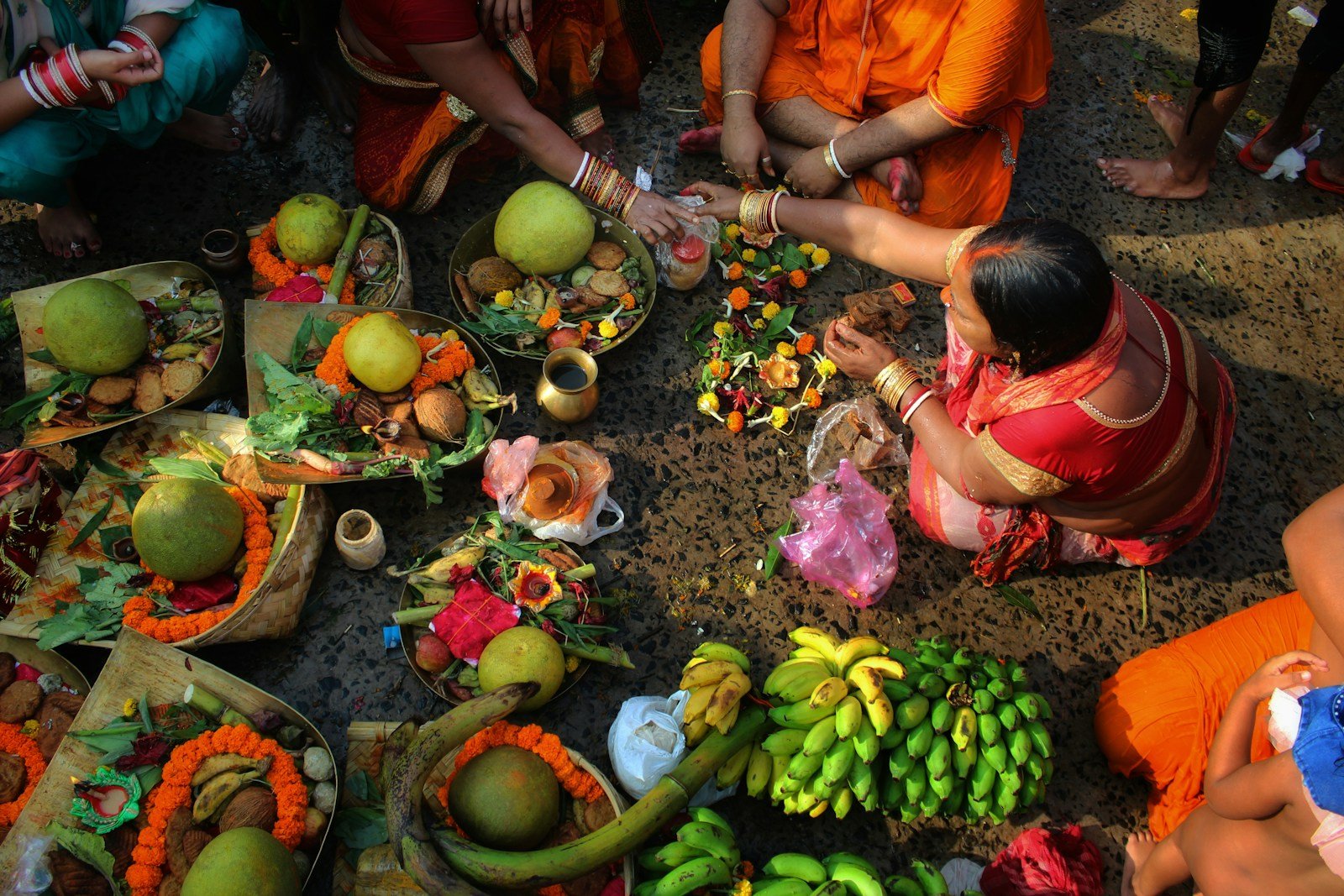Cultural sensitivity is a vital aspect of travel experiences, as it involves demonstrating respect and understanding towards the customs, beliefs, and values of the local community.
When traveling to a new destination, it is crucial to approach the culture with an open mind and a willingness to learn. By embracing the unique traditions and practices of the local people, travelers not only show appreciation for the culture but also foster positive interactions and meaningful connections.
One key aspect of cultural sensitivity in travel is being mindful of one’s behavior and language. It is important to be aware of cultural norms, such as dress codes, greetings, and gestures, to avoid inadvertently causing offense. Additionally, taking the time to learn basic phrases in the local language can go a long way in building rapport with locals and demonstrating a sincere effort to engage respectfully with the culture. By practicing cultural sensitivity in travel experiences, individuals can contribute to promoting cross-cultural understanding and creating enriching and authentic experiences.
The Importance of Embracing Local Traditions
Traveling to new destinations provides us with the opportunity to immerse ourselves in unfamiliar cultures and traditions. Embracing local customs allows us to broaden our perspectives and gain a deeper appreciation for the diversity that exists in the world. By actively participating in traditional ceremonies, observing cultural practices, and interacting with locals, we can form meaningful connections that transcend language barriers and geographical boundaries.
Engaging with local traditions also fosters mutual respect and understanding between travelers and the communities they visit. It demonstrates our willingness to learn from others and adapt to different ways of life. By embracing local customs with an open mind and respectful attitude, we not only enrich our travel experiences but also contribute to the preservation and appreciation of heritage and cultural identities.
Building Meaningful Connections with Locals
When traveling to new destinations, the opportunity to connect with locals can greatly enrich one’s experience. Engaging with the community in a respectful and genuine manner can lead to meaningful interactions that transcend cultural barriers. By taking the time to listen to their stories, learn about their customs, and participate in their daily activities, travelers can gain a deeper understanding of the place they are visiting.
Building meaningful connections with locals involves showing genuine interest in their way of life and fostering mutual respect. It is essential to approach interactions with an open mind and willingness to learn from those with different backgrounds. By engaging in conversation, sharing experiences, and exchanging ideas, travelers can create lasting bonds that not only enhance their own journey but also contribute positively to the local community they are visiting.
Exploring Cultural Diversity Through Food
Delving into a region’s culinary heritage serves as a window into its culture, history, and traditions. Each dish tells a story, reflecting the unique ingredients, cooking techniques, and flavors that are deeply rooted in the local community. Through sampling a variety of dishes, travelers can immerse themselves in the rich tapestry of a destination’s culinary diversity, gaining a greater appreciation for the interconnectedness between food and culture.
In every bite lies a blend of flavors that represents a fusion of influences shaped by centuries of trade, migration, and cultural exchange. From vibrant street markets to cozy family-run eateries, the culinary landscape offers an opportunity to engage with locals, fostering a deeper connection and understanding of their way of life. By exploring cultural diversity through food, travelers not only savor new tastes but also gain a deeper insight into the essence of a destination, leaving them with lasting memories of authentic and immersive travel experiences.

Navigating Language Barriers with Respect
When traveling to a destination where the native language differs from your own, communication can sometimes be challenging. It is essential to approach language barriers with an attitude of respect and patience. Instead of getting frustrated, try to use gestures, simple words, or even a translation app to bridge the gap. Remember that learning a few basic phrases in the local language can go a long way in showing respect for the culture and people you encounter.
Additionally, it is crucial to be mindful of your tone of voice and body language when interacting with locals who may not speak your language fluently. Speak clearly and at a moderate pace, and be open to the possibility of miscommunication. Avoid speaking loudly or using complex vocabulary that may confuse the other person. By approaching language barriers with empathy and understanding, you can foster positive interactions and create meaningful connections with people from different cultural backgrounds.
Respecting Sacred Sites and Cultural Practices
When traveling to new destinations, it is crucial to demonstrate utmost respect for sacred sites and cultural practices. These sites hold immense significance for the local communities and are steeped in tradition and history. Visitors should approach these locations with reverence and mindfulness, recognizing their importance in preserving the cultural heritage of the area. By honoring these sacred sites, travelers not only show respect for the local customs but also contribute to the preservation of cultural identity for future generations.
Furthermore, understanding and respecting cultural practices is integral to fostering mutual respect and appreciation between visitors and locals. By taking the time to learn about the traditions and customs of the community, travelers can gain a deeper insight into the local way of life and forge meaningful connections with the people they encounter. Embracing these practices with an open mind and a willingness to learn demonstrates a genuine interest in the culture and promotes a spirit of cultural exchange and understanding.
Learning from Indigenous Communities
Indigenous communities around the world possess invaluable knowledge and traditions that offer profound insights into sustainable living, harmonious relationships with nature, and deeply rooted cultural practices. By engaging with these communities in a respectful and meaningful manner, travelers have the opportunity to learn from their centuries-old wisdom and unique perspectives on life.
Through immersive experiences such as homestays, guided tours, and cultural workshops, travelers can gain a deeper appreciation for the rich tapestry of indigenous heritage. By actively listening to their stories, participating in traditional rituals, and supporting local artisans, we not only enrich our own travel experiences but also contribute to the preservation and promotion of indigenous cultures for future generations.
Understanding the Impact of Tourism on Local Cultures
Tourism plays a significant role in shaping local cultures across the globe. As travelers venture into new destinations, they bring with them their customs, beliefs, and behaviors, which can influence the cultural landscape of the communities they visit. This impact can be both positive and negative, as tourism can bring economic opportunities and cultural exchange, but it can also lead to the commodification of traditions and the erosion of authentic cultural practices.
One of the key challenges in understanding the impact of tourism on local cultures lies in finding a balance between economic growth and cultural preservation. Local communities often rely on tourism for livelihoods, but the influx of tourists can sometimes disrupt traditional ways of life and put strains on resources. It is crucial for travelers to be mindful of their impact on local cultures and to engage in responsible tourism practices that respect the traditions and values of the communities they visit.
Celebrating Festivals and Traditions Around the World
Festivals and traditions around the world offer a glimpse into the rich tapestry of diverse cultures that exist on our planet. Attending local festivals can be a transformative experience, providing insight into the customs and beliefs of a community. Whether it’s the colorful and vibrant carnival in Brazil, the serene and spiritual Diwali celebrations in India, or the lively Oktoberfest in Germany, each festival carries its own unique significance that is worth exploring.
Participating in traditional ceremonies and festivities allows travelers to immerse themselves in the heartbeat of a culture, forging connections with locals and gaining a deeper understanding of their way of life. By engaging in these events with an open mind and respect for customs, individuals can foster meaningful connections and create lasting memories that transcend borders and language barriers. Embracing the opportunity to celebrate festivals and traditions around the world is a way to promote cultural exchange and appreciation, ultimately fostering a more interconnected and empathetic global community.
Promoting Cross-Cultural Understanding Through Travel
Exploring new cultures through travel holds the power to bridge divides and foster mutual understanding. As we immerse ourselves in unfamiliar customs and traditions, we gain valuable insights that transcend geographical boundaries. This firsthand experience enables us to cultivate empathy and appreciation for the diverse perspectives that enrich our global community.
Embracing cross-cultural encounters with an open mind is not merely a leisure activity but a profound act of connecting with our shared humanity. By actively engaging with local communities and respectfully participating in their way of life, we contribute to a more inclusive and harmonious world. Through these meaningful interactions, we pave the way for deeper connections that transcend superficial differences and pave the way for a more compassionate and interconnected global society.




